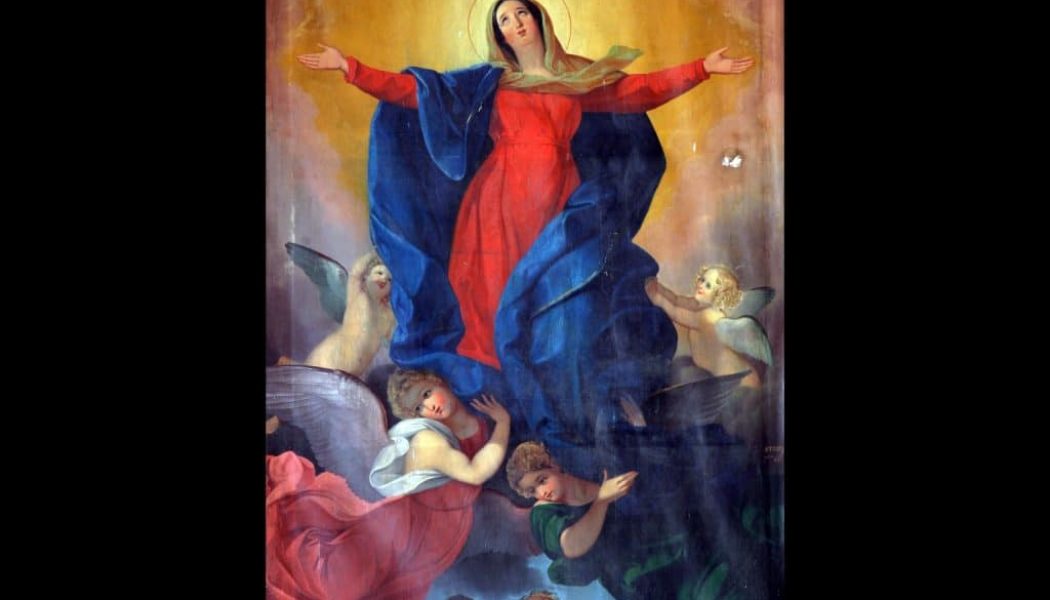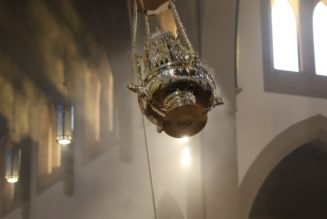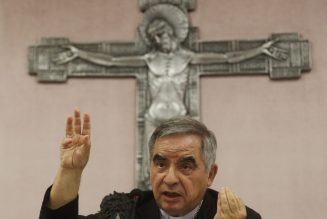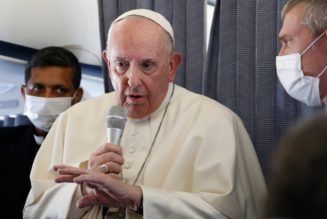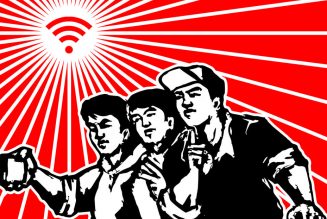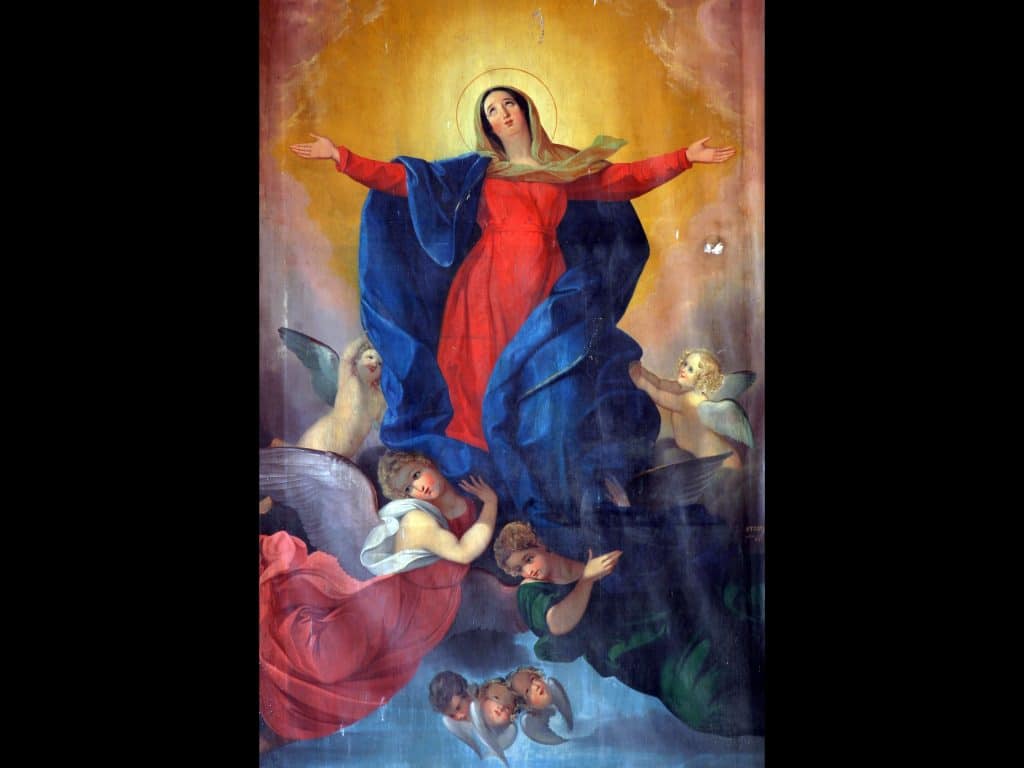
Our Lady’s Assumption into heaven was more of a continuation than an end. Yes, it signaled the conclusion of her earthly life. But the Assumption was for Mary the logical next step. Her fidelity to Christ in this life translated into everlasting glory with him in the next.
Our Blessed Mother is now in paradise where she prays for us to her Divine Son and awaits our victorious entry into the kingdom of God — the “New Jerusalem.”
The Lord God raised up this obedient woman and granted her a fitting place next to Christ. As Our Lady unceasingly cooperated with Jesus on earth, she would now be close to him in heaven. As the Messiah was victorious over Satan, so was Mary.
It is not a mere calendar coincidence that the solemnity of the Assumption of the Blessed Virgin Mary, Aug. 15, and the memorial of her queenship, Aug. 22, are only seven days apart. Our Lady’s queenship follows her joyful entrance into heaven. The two commemorations are deliberately and necessarily linked.
Having been assumed body and soul into paradise (the fourth of the glorious mysteries of the rosary), Mary was crowned by God as the queen of heaven and earth (the fifth of the glorious mysteries). Her motherhood and queenship are universal in scope, and her intercession is powerful, certain and reliable. Mary is the queen of the saints in paradise, of those of us on earth and of those souls in purgatory.
Since Jesus is our true and only king, he has many powers: to establish the New Law that is the fulfillment of the Old Law; to propose revealed truths; to grant sanctifying grace and the virtues to souls; to judge the living and the dead.
Due to her queenship, Mary, too, has various roles, including to distribute the graces that Christ won for us by his salvific death on Calvary and to give good example of how the virtues are to be lived.
In the October 1948 issue of Guideposts appeared an article by George Herman (“Babe”) Ruth Jr. (1895-1948), a native of Baltimore. He acknowledged the importance of Our Lady’s intercession from heaven, the reception of the sacraments and the value of friendship.
“In December, 1946, I was in French Hospital, New York, facing a serious operation. Paul Carey, one of my oldest and closest friends, was by my bed one night. ‘They’re going to operate in the morning, Babe,’ Paul said. ‘Don’t you think you ought to put your house in order?’
“I didn’t dodge the long, challenging look in his eyes. I knew what he meant. For the first time I realized that death might strike me out.
“I nodded, and Paul got up, called in the priest, and I made a full confession. ‘I’ll return in the morning and give you Holy Communion,’ Father said, ‘But you don’t have to fast.’ ‘I’ll fast,’ I said. I didn’t have even a drop of water. As I lay in bed that evening, I thought to myself what a comforting feeling to be free from fear and worries. I now could simply turn them over to God.
“Later on, my wife brought in a letter from a little kid in Jersey City. ‘Dear Babe,’ he wrote, ‘Everybody in the seventh-grade class is pulling and praying for you. I am enclosing a Medal which if you wear will make you better. Your pal, Mike Quinlan. P.S. I know this will be your 61st homer. You’ll hit it.’
“I asked them to pin the Miraculous Medal to my pajama coat. I’ve worn the Medal constantly ever since. I’ll wear it to my grave.”
The Assumption of Mary and her subsequent coronation were not only God’s gifts to the mother of Christ; they are also his gifts to us. They have everlasting consequences.
Msgr. Mangan is on the faculty of Mt. St. Mary’s Seminary in Emmitsburg, Md.
